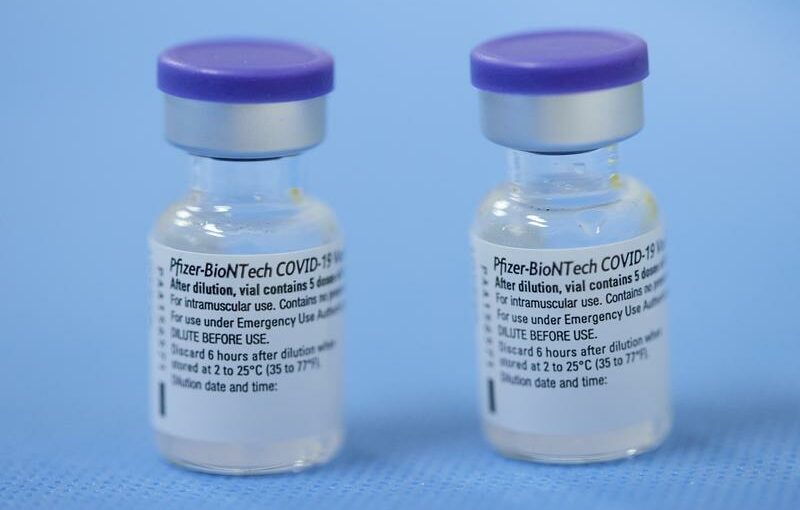(Reuters) -An advisory panel to the U.S. Centers for Disease Control and Prevention (CDC) on Monday unanimously recommended the Pfizer Inc and BioNTech Se COVID-19 vaccine for people age 16 and older, an important step after it gained full U.S. approval.
The Food and Drug Administration last week granted full approval to the vaccine that was previously available under the agency’s emergency use authorization (EUA), which had allowed the shots to be rolled out rapidly to Americans.
Health officials hope the formal approval and CDC recommendation will spur more Americans to get vaccinated. With full FDA approval, some companies and states have begun mandating COVID-19 vaccination.
Vaccination rates remain low in many parts of the United States, contributing to a big surge in hospitalizations due to the highly contagious Delta variant of the coronavirus.
Some panel members said increasing vaccinations before the fall season was critical to getting children back to schools safely.
“Everyone who has anything to do with a child that is not old enough to be vaccinated yet should be vaccinated for the benefit of their children,” said Dr. Helen Keipp Talbot, an infectious disease specialist who was part of the panel.
The benefits of the vaccine outweigh the risks, the CDC said in presentations made to the panel.
New Zealand on Monday reported its first death linked to Pfizer’s COVID-19 vaccine after a woman suffered myocarditis, a type of inflammation of the heart muscle that is a known rare side effect of the vaccine. Health officials there said other factors could have contributed to her death.
There have been no reported deaths among young U.S. adults who developed myocarditis after getting the Pfizer/BioNTech vaccine, CDC said.
The risk of myocarditis was 18.5 cases per million doses given among people aged 18 to 24 after their second Pfizer dose and 20.2 per million for that age group among recipients of the second dose of Moderna’s similar vaccine – a higher risk than in other age groups.
The risk was also significantly higher among males than females, according to the CDC’s data.
Source: Read Full Article
